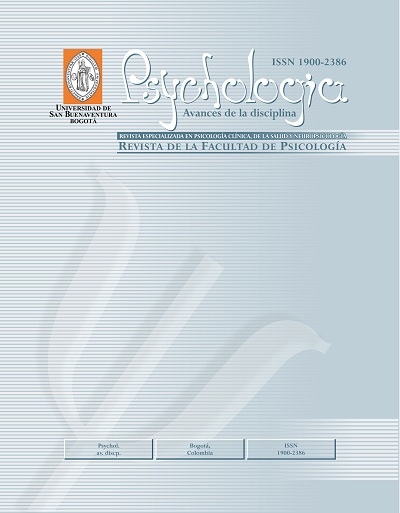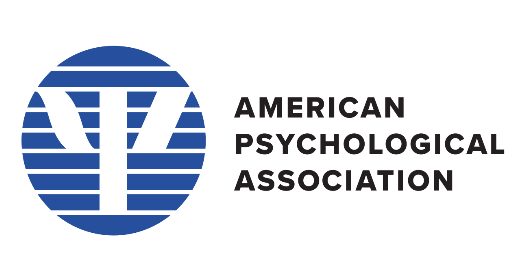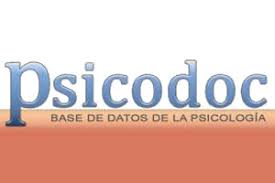This journal provides open, immediate access to its contents, based on the principle that offering the public free access to research helps to promote a higher global exchange of knowledge.
As such, all journal articles are published under a Creative Commons Attribution-NonCommercial-ShareAlike 4.0 International License (CC BY-NC-SA), by which commercial use of the original work or its possible derived works is not allowed, and the distribution thereof must be done with the same license elements regulating the original work.
http://creativecommons.org/licenses/by-nc-sa/4.0/
Abstract
The aim of this research was to compare the processes of social cognition in adults with mild, moderate and severe Traumatic Brain Injury (TBI). It was a descriptive, comparative, cross - sectional study, based on the evaluation of three processes of social cognition: Theory of mind, Emotional recognition and Moral judgment of 126 adults with TBI, with ages between 18-52 years evaluated in three cities of Colombia measured through three instruments: Faux Pas Test, Reading the Mind in the Eyes Test and moral dilemmas. Significant differences were found in the Faux Pas and in the eye test. It is concluded that people with TBI evaluated have an alteration in the theory of the mind and an average performance in emotional recognition and moral dilemmas.
References
Adolphs, R. (2003). Cognitive neuroscience of human social behaviour. Nature Reviews Neuroscience, 4(3), 165-78.
Adolphs, R. (2010). Conceptual Challenges and Directions for Social Neuroscience. Neuron Review, 65(6), 752–767.
Baron-Cohen, S., Wheelwright, S., Hill, J., Raste, Y., & Plumb, I. (2001). The ‘reading the mind in the eyes’ test revised version: a study with normal adults,and adults with Asperger syndrome or high-functioning autism. Journal of Child Psychology and Psychiatry, 42, 241-51.
Benedictus, M., Spikman, J., & van der Naalt, J. (2010). Cognitive and behavioral impairment in traumatic brain in- jury related to outcome and return to work. Archives of Physical Medicine and Rehabilitation, 91(9), 1436–1441.
Bivona, U., Formisano, R., De Laurentiis, S., Accetta, N., Rita Di Cosimo, M., Massicci, R., Ciurli, P., Azicnuda, E., Silvestro, D., Sabatini, U., Falletta Caravasso, C., Carlesimo, GA., Caltagirone, C., & Costa, A. (2015). Theory of mind impairment after severe traumatic brain injury and its relationship with caregivers’ quality of life. Restorative Neurology and Neuroscience, 33(3), 335–34.
Bivona, U., Riccio, A., Ciurli, P., Carlesimo, G. A., Delle Donne, V., Pizzonia, E., Caltagirone, C,, Formisano, R. & Costa, A. (2014). Low Self-Awareness of Individuals with Severe Traumatic Brain Injury Can Lead to Reduced Ability to Take another Person’s Perspective. J Head Trauma Rehabilitation, 29(2), 157–171.
Bootes, K. & Chapparo, C. (2010). Difficulties with multitasking on return to work after TBI: A critical case study. Work: A Journal of Prevention, Assessment and Rehabilitation, 26(2), 207-216.
Carmona, M., Caracuel, A., Verdejo, A., & Perez, M. (2013). Adaptación a la población española de un instrumento de juicios morales: La batería de dilemas morales de Moore. Anales de Psicología, 29(3), 827–835.
Carmona, M., Molina-Fernández, A., & Pérez, M. (2012). Juicios morales en drogodependencias. Trastornos Adictivos, 14(1), 21-26.
Channon, S., & Crawford, S. (2010). Mentalis and social problem solving after brain injury. Neuropsychological Rehabilitation, 20, 739–759.
Cushman, F., & Greene, J. (2012). Finding faults: How moral dilemmas illuminate cognitive structure. Social Neuroscience, 7(3), 269–279.
De Sousa, A., McDonald, S., Rushby, J., Li, S., Dimoska, A., & James, C. (2010). Why don’t you feel how I feel? Insight into the absence of empathy after severe traumatic brain injury. Neuropsychologia, 48(12), 3585–3595.
De Sousa, A., McDonald, S., Rushby, J., Li, S., Dimoska, A., & James, C. (2011). Understanding deficits in empathy after traumatic brain injury: The role of affective responsivity. Cortex, 47(5), 526–535.
De Sousa, A., McDonald, S., & Rushby, J. (2012). Changes in emotional empathy, affective responsivity, and behavior following severe traumatic brain injury. Journal of Clinical and Experimental Neuropsychology, 34(6), 606–623.
Fuentes, I., Ruíz, J., García, S., & Soler, J. (2008). Aproximaciones a la evaluación de la cognición social en la esquizofrenia. Rehabilitación Social, 5(1y 2), 25–30.
Geraci, A., Surian, L., Ferraro, M., & Cantagallo, A. (2010). Theory of mind in patients with ventromedial or dorsolateral prefrontal lesions following traumatic brain injury. Brain Injury, 24(7–8), 978–987.
Greene, J., Sommerville, R., Nystrom, L., Darley, J., & Cohen, J. (2001). An fMRI Investigation of Emotional Engagement in Moral Judgment. Science, 293, 2105- 2108.
Greene, J., Nystrom, L., Engell, A., Darley, J. & Cohen, J. (2004). The Neural Bases of Cognitive Conflict and Control in Moral Judgment. Neuron Review, 44, 389–400.
Han, H., Glover, G. H., & Jeong, C. (2014). Cultural influences on the neural correlate of moral decision making processes. Behavioural Brain Research, 259, 215–228.
Honan, C., McDonald, S., Gowland, A., Fisher, A., & Randall, R. (2015). Deficits in comprehension of speech acts after TBI: The role of theory of mind and executive function. Brain & Language, 150, 69–79.
Instituto Nacional de Medicina Legal y Ciencias Forenses (2015). Forensis 2014, Datos para la vida- Herramienta para la interpretación, intervención y prevención de lesiones de causa externa en Colombia. En: http://www.medicinalegal.gov.co
International Brain Injury Association (IBIA). (2016). Brain injury facts: worldwide. Available online at: http:// www.internationalbrain.org/?q=Brain–Injury–Facts.
Kelly, M., McDonald, S., & Kellett, D. (2014). Development of a novel task for investigating decision making in a social context following traumatic brain injury. Journal of Clinical and Experimental Neuropsychology, 36(9), 897–913.
Koenigs, M., Young, L., Adolphs, R., Tranel, D., Cushman, F., Hauser, M., & Damasio, A. (2007). Damage to the prefrontal cortex increases utilitarian moral judgements. Nature, 446, 908–911.
Lengenfelder, J., Arjunan, A., Chiaravalloti, N., Smith, A., & DeLuca, J. (2015). Assessing frontal behavioral syndromes and cognitive functions in traumatic brain injury. Applied Neuropsychology. Adult, 22(1), 7–15.
Martins, A., Faísca, L., Esteves, F., Muresan, A. & Reis, A. (2012). Atypical moral judgment following traumatic brain injury. Judgment and Decision Making, 7(4), 478–487.
Martin-Rodríguez, J. & León-Carrión, J. (2010). Theory of mind deficits in patients with acquired brain injury: A quantitative review. Neuropsychologia, 48(5), 1181–1191.
Menon, D. K., Schwab, K., Wright, D. W., & Maas, A. I. (2010). Position Statement: Definition of Traumatic Brain Injury. Archives of Physical Medicine and Rehabilitation, 91(11), 1637–1640.
McDonald, S. (2013). Impairments in social cognition following severe traumatic brain injury. Journal of the International Neuropsychological Society, 19(3), 231–46.
McDonald, S., Gowland, A., Randall, R., Fisher, A., Osborne-Crowley, K., & Honan, C. (2014). Cognitive Factors Underpinning Poor Expressive Communication Skills After Traumatic Brain Injury: Theory of Mind or Executive Function? Neuropsychology, 28(5), 801–811.
McDonald, S., Saad, A., & James, C. (2011). Social dysdecorum following severe traumatic brain injury: Loss of implicit social knowledge or loss of control? Journal of Clinical and Experimental Neuropsychology, 33(6), 619–630.
Ministerio de la Protección Social. (2006). Ley número 1090 de 2006. En: https://www.unisabana.edu.co/fileadmin/Documentos/Investigacion/comite_de_etica/Ley_1090_2006_-_Psicologia.pdf
Ministerio de Salud. (1993). Resolución Nª 008430 de 1993. En: https://www.invima.gov.co/images/pdf/medicamentos/resoluciones/etica_res_8430_1993.pdf
Moll, J., Zahn, R., de Oliveira-Souza, R., Krueger, F., & Grafman, J. (2005). Opinion: the neural basis of human moral cognition. Nature Reviews Neuroscience, 6(10), 799-809.
Moreno, S. (2013). Comportamiento de muertes y lesiones accidentales, Colombia, 2013. Instituto Nacional de Medicina Legal y Ciencias Forenses. En: http://www.medicinalegal.gov.co
Moretto, G., Làdavas, E., Mattioli, F., & Di Pellegrino, G. (2010). A psychophysiological investigation of moral judgment after ventromedial prefrontal damage. Journal of Cognitive Neuroscience, 22(8), 1888-1899.
Muller, F., Simion, A., Reviriego, E., Galera, C., Mazaux, J.-M., Barat, M., & Pierre-Alain, J. (2010). Exploring theory of mind after severe traumatic brain injury. Cortex, 46(9), 1088–1099.
Muñana, J. & Ramírez, A. (2014). Escala de coma de Glasgow: origen, análisis y uso apropiado. Enfermería Universitaria, 11(1), 24–35.
Perera, M., Molina, A., & García, M. (2012). Juicios morales en drogodependencias. Trastornos Adictivos, 14(1), 21–26.
Quijano, M., Lasprilla, J., & Cuervo, M. (2010). Alteraciones cognitivas, emocionales y comportamentales a largo plazo en pacientes con trauma craneoencefálico en Cali, Colombia. Revista Colombiana de Psiquiatría, 39(4), 716–731.
Rilling, J., & Sanfey, A. (2011). The Neuroscience of Social Decision Making. Annual Review of Psychology, 62, 23–48.
Rivera, A. (2013). Dilemas morales, juicio moral y corteza prefrontal ventromedial. Revista Colombiana de Filosofía de la Ciencia, 13, 43-61.
Rizzolatti, G. & Sinigaglia, C. (2010). The functional role of the parieto-frontal mirror circuit: interpretations and misinterpretations. Nature Reviews Neuroscience, 11, 264–274.
Roebuck-Spencer, T. & Cernich, A. (2014). Epidemiology and Societal Impact of Traumatic Brain Injury. En Sherer, M. & Sander, A. (Ed.), Handbook on the Neuropsychology of Traumatic Brain Injury (3-24). New York, USA: Springer.
Rosenberg, H., Dethier, M., Kessels, R., Westbrook, R. & McDonald, S. (2015). Emotion Perception After Moderate–Severe Traumatic Brain Injury:The Valence Effect and the Role of Working Memory, Processing Speed, and Nonverbal Reasoning. Neuropsychology, 29(4), 509–521.
Ruiz, J., García, S. & Fuentes, I. (2006). La relevancia de la cognición social en la Esquizofrenia. Apuntes de Psicología, 24(1-3), 137-155.
Sánchez, I., Tirapu, J. & Adrover, D. (2012). Neuropsicología de la cognición social y la autoconciencia. En Tirapu, J., García, A., Ríos, M. y Ardila, A. (Ed.). Neuropsicología del cortex prefrontal y funciones ejecutivas. Barcelona, España: Vigueral.
Schaafsma, S., Pfaff, D., Spunt, R., & Adolphs, R. (2015). Deconstructing and reconstructing theory of mind. Trends in Cognitive Sciences, 19(2), 65–72.
Spikman, J., Timmerman, M., Milders, M., Veenstra, W. & van der Naalt, J. (2012). Social Cognition Impairments in Relation to General Cognitive Deficits, Injury Severity, and Prefrontal Lesions in Traumatic Brain Injury Patients. Journal of Neurotrauma, 29(1), 101–111.
Stone, V., Baron-Cohen, S. & Knight, R.T. (1998). Frontal lobe contributions to theory of mind. Journal of Cognitive Neuroscience, 10(5), 640–656.
Temkin, N., Corrigan, J., Dikmen, S. & Machamer, J., (2009). Social functioning after traumatic brain injury. Journal of Head Trauma Rehabilitation, 24(6), 460-467.
Ubukata, S., Tanemura, R., Yoshizumi, M., Sugihara, G., Murai, T. & Ueda, K. (2014). Social cognition and its relationship to functional outcomes in patients with sustained acquired brain injury. Neuropsychiatric Disease and Treatment, 10(2), 2061–2068.
World Health Organization. (2010). World Health Statistics. Geneva. En: http://www.who.int/gho/publications/world_health_statistics/EN_WHS1 0_Full.pdf
Yeates, G. (2014). Social Cognition Interventions in Neuro-Rehabilitation: An Overview. Advances in Clinical Neuroscience & Rehabilitation, 14(1), 12-13.
Zegarra, J. (2014). Neuropsicología de la cognición social. Breve revisión de los conceptos. Revista de Peruana de Psicología y Trabajo Social, 3(1), 27-36.





















